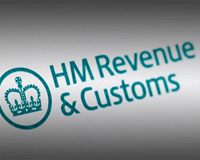 A High Court judge today criticised tax officials, saying HMRC’s conduct in a lawsuit relating to a £69m tax bill charged to a landfill company was “without precedent”, and “simply offensive to justice”.
A High Court judge today criticised tax officials, saying HMRC’s conduct in a lawsuit relating to a £69m tax bill charged to a landfill company was “without precedent”, and “simply offensive to justice”.In the ruling High Court judge Sir Kenneth Parker ruled in favour of waste disposal company Biffa Waste Services. Biffa, which operates 12 landfill sites across the UK, was given the tax bill in June 2012. It related to landfill tax between 2009 and 2012 on an upper layer of landfill that is used to help seal sites before they are landscaped over.
Landfill tax is a per-tonne duty paid on waste put into landfill sites. Biffa hadn’t been paying duty on an upper layer after queries by its North Herts site resulted in a ruling by HMRC in 2009 that exempted the layer from the tax.
Following changes to the tax regime, HMRC issued a tax brief in 2012 stating that the layer was only exempt from tax before September 2009. It also issued Biffa with a tax assessment of £69,898,920 for landfill tax on the layer between September 2009 and March 2012.
Biffa challenged the bill and the case came to court in April.
In his ruling today the judge said HMRC lawyers argued that the 2009 ruling “was confined to a single site, namely North Herts, and could not reasonably be used in respect of any other landfill sites used by Biffa”.
However, “during the course of the evidence hearing I was testing the proposition that the ruling was of general application and not site specific”, the judge said.
He said that, according to the information given to him, “only local officers had been involved” in the 2009 ruling, and there was “no witness statement from any senior HMRC officer at policy level explaining” why the ruling was taken at a local level without reference to a senior policy officer.
“On reviewing the documents for the purposes of preparing this judgment, I reluctantly reached the point where I could barely believe that senior HMRC officers concerned with the policy had not been involved in the decision-making leading to the ruling”, he wrote. “Therefore, on 22 April 2016, some little time after the three-day hearing had concluded, and most exceptionally at such a stage in the proceedings, I sent an email to the parties stating that I was minded to order HMRC to provide specific disclosure.”
A week later HMRC sent the judge a witness statement and some more documents. “Those documents conclusively show that at least one senior HMRC officer at policy level in the relevant tax area was centrally involved in the decision making leading to the ruling,” he said.
“In my view, the documents now utterly undermine the contention that HMRC intended to make a ruling that was exclusively site specific.”
He ruled that he “cannot give any real weight” to the claim that the 2009 ruling was meant to relate only to the North Herts site, and found in favour of Biffa.
The judge said in his ruling that “even now” he was “not satisfied” that all the relevant documents had come to light.
“It is deeply unattractive, to put the matter at its lowest, for HMRC to advance a case based upon incomplete material known to the taxpayer, that a particular representation should be given a very narrow scope, when HMRC has in its possession further significant documents that, on a fair reading, show that no such narrow scope was intended by HMRC,” he wrote.
“The position reached in this case, as far as I am aware, is without precedent, and I sincerely hope that it will never recur,” the judgment said.
“Such conduct might be acceptable in the sphere of private contracts in public law it is, in my view, simply offensive to justice and unlawful,” he said.
Biffa Waste Services Limited v HMRC
Administrative Court (Sir Kenneth Parker sitting as a Judge of the High Court) 23 June 2016







